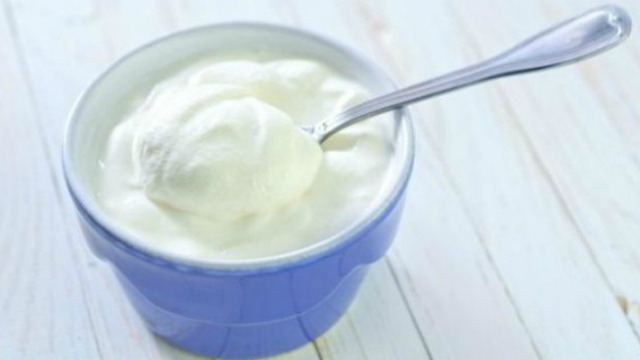 A recent study published in Gut Microbes has shed light on the potential protective benefits of long-term yoghurt consumption against colorectal cancer, specifically proximal colon cancer.
A recent study published in Gut Microbes has shed light on the potential protective benefits of long-term yoghurt consumption against colorectal cancer, specifically proximal colon cancer.
The research, led by investigators at Mass General Brigham, suggests that consuming two or more servings of yoghurt per week may lower the incidence of a type of colorectal cancer that occurs in the right side of the colon.
This large-scale study, which spans three decades, analysed data from two prominent cohort studies: the Nurses’ Health Study (NHS) and the Health Professionals Follow-up Study (HPFS).
The data, which includes detailed information on participants’ diet, lifestyle habits, and health outcomes, has been invaluable in connecting long-term dietary patterns to the presence of certain diseases, including colorectal cancer.
The findings showed that participants who regularly consumed yoghurt were less likely to develop Bifidobacterium-positive colorectal cancer, a specific form of the disease associated with the bacterial presence in the tumour.
The researchers explained that their investigation into the connection between yoghurt intake and colorectal cancer was built upon the understanding that yoghurt contains live bacterial strains, which play a significant role in regulating the gut microbiome.
The gut microbiome, a diverse community of microorganisms in the digestive system, has been found to influence a range of health outcomes, including the risk of gastrointestinal cancers.
The research team, headed by Dr Shuji Ogino, focused specifically on Bifidobacterium, a type of bacteria found in yoghurt. They found that people who regularly consumed yoghurt tended to have lower rates of proximal colon cancer, which is more common in the right side of the colon.
Their finding is particularly notable since patients diagnosed with proximal colon cancer tend to have worse survival outcomes than those with distal colon cancer, which occurs on the left side of the colon.
Bifidobacterium, commonly present in yoghurt, was detected in about 30 per cent of colorectal cancer patients’ tumour tissues.
The study found that those who consumed yoghurt consistently had a 20 per cent lower incidence of Bifidobacterium-positive proximal colon cancer suggesting that yoghurt consumption may directly impact the microbiome in a way that prevents the development of certain types of colorectal cancer.
To conduct the study, the researchers analysed data from more than 100,000 women in the NHS and over 50,000 men in the HPFS, both of which have been following participants for decades. The data dating as far back as 1976 for NHS and 1986 for HPFS, included questionnaires on diet, including yogurt consumption, as well as other lifestyle factors.
The researchers also collected tissue samples from participants with confirmed colorectal cancer diagnoses to measure the presence of Bifidobacterium in tumour tissues.
Through these studies, they identified 3,079 documented cases of colorectal cancer. The researchers found that 31 per cent of these cases had detectable Bifidobacterium in their tumour tissue.
While no significant association was found between yoghurt consumption and overall colorectal cancer incidence, the study did reveal a significant link between yoghurt intake and a reduction in the risk of Bifidobacterium-positive proximal colon cancer.
Specifically, participants who consumed two or more servings of yoghurt per week had a 20 per cent lower rate of developing this type of cancer. The researchers also noted that the bacteria Bifidobacterium appeared to be a common factor in the development of colorectal cancer and that the presence of the bacteria in tumour tissue could have significant implications for cancer prevention strategies.
They reported that while yoghurt consumption was associated with a reduced risk of Bifidobacterium-positive cancer, no similar association was found with overall colorectal cancer risk, indicating that the protective effects may be specific to this subset of tumours.
A co-senior author of the study, Dr Tomotaka Ugai, pointed out that the findings offer valuable insights into the relationship between diet, the gut microbiome, and colorectal cancer. “It has long been believed that yoghurt and other fermented milk products are beneficial for gastrointestinal health. Our new findings suggest that this protective effect may be specific for Bifidobacterium-positive tumours,” he said.
These results raise important questions about the broader impact of yoghurt on colorectal cancer prevention and its potential role in the microbiome. The study’s authors hypothesise that regular yoghurt consumption may help balance the gut microbiome, increasing the presence of beneficial bacteria like Bifidobacterium while reducing the growth of harmful microorganisms that contribute to cancer development.
However, the researchers also noted that more research is needed to fully understand the mechanisms by which yoghurt consumption might influence cancer development.
Another co-author, Dr Andrew Chan, emphasised the importance of further investigation into how dietary factors, such as yoghurt intake contribute to the development of colorectal cancer.
“This paper adds to the growing evidence that illustrates the connection between diet, the gut microbiome, and the risk of colorectal cancer. It provides an additional avenue for us to investigate the specific role of these factors in the risk of colorectal cancer among young people,” he noted.






